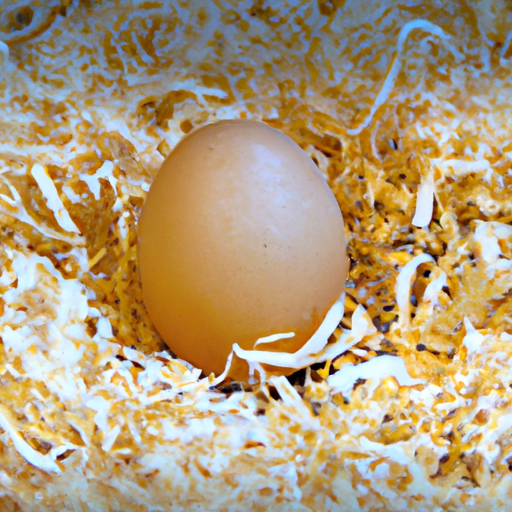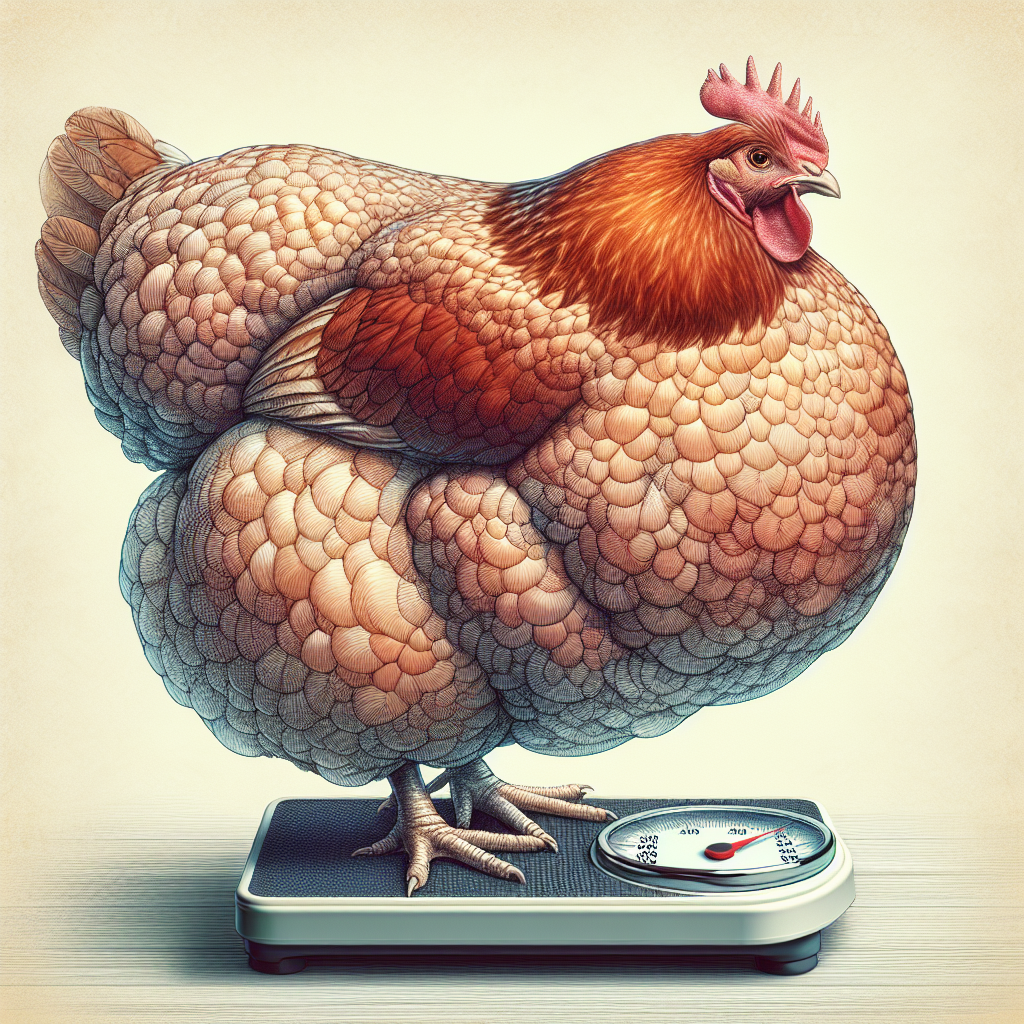Are you curious about whether there are any supplements or additives available that can effectively enhance egg quality and production? If you’ve ever wondered how to optimize the production of high-quality eggs or boost the overall health and productivity of your flock, then you’re in the right place. In this article, we will explore the world of egg production and delve into the potential benefits that supplements or additives may bring to your feathered friends. So, let’s discover if there are any hidden secrets to maximizing egg quality and production!
Importance of Egg Quality and Production
Eggs are a staple in many diets worldwide, and for good reason. They are not only a versatile ingredient in numerous culinary dishes but also a powerhouse of essential nutrients. However, not all eggs are created equal. The quality of an egg can vary significantly depending on various factors, including the health of the hen and the conditions in which it is raised. Likewise, egg production can also be influenced by factors that impact the overall productivity of the hens. Understanding the importance of egg quality and production is crucial for those involved in poultry farming or simply seeking the best eggs for consumption.
Factors Affecting Egg Quality
The quality of an egg is determined by several factors, each playing a role in its overall nutritional value and sensory qualities. A key factor is the diet of the hen, which directly influences the composition of the egg. Hens that consume a well-balanced diet that includes essential nutrients produce eggs with superior quality. Additionally, the age of the hen can also affect egg quality, as younger hens tend to lay eggs with stronger shells and more vibrant yolks. Environmental factors, such as stress levels and living conditions, can also impact the quality of eggs produced.
Factors Affecting Egg Production
While egg quality focuses on the individual characteristics of each egg, egg production refers to the number of eggs laid by a hen over a specific period. Several factors can influence egg production in hens. The breed of the hen plays a significant role, as some breeds are known for their prolific egg-laying capabilities. The age of the hen also affects production, with younger hens typically being more productive. Other factors, such as nutrition, lighting conditions, and overall health, also play a crucial role in determining the productivity of hens.
Supplements and Additives for Egg Quality
To enhance egg quality, there are a variety of supplements and additives available that can be incorporated into the diet of hens. These additions can provide the necessary nutrients and compounds that contribute to the overall nutritional value and sensory characteristics of the eggs.
Omega-3 Fatty Acids
Research has shown that hens fed with omega-3 fatty acids produce eggs with higher levels of these essential fats. Omega-3 fatty acids are known for their numerous health benefits, including reducing inflammation and promoting heart health. By adding omega-3 supplements to the diet of hens, egg producers can enhance the nutritional profile of the eggs they produce.
Antioxidants
Antioxidants are compounds that help protect cells from damage caused by free radicals. Studies have suggested that hens fed with antioxidant-rich diets, such as those containing herbs or certain fruits, produce eggs with higher antioxidant content. Increased antioxidant levels in eggs can provide additional health benefits to consumers.
Vitamins and Minerals
The inclusion of vitamins and minerals in the diet of hens is essential for optimal egg quality. Nutrients such as vitamin D, vitamin E, and selenium can influence the color, flavor, and overall nutrient content of eggs. Providing hens with a balanced diet that includes these essential vitamins and minerals can result in higher-quality eggs.
Protein Supplements
Protein is an important component of egg quality, as it contributes to the structure and texture of the egg. Supplementing the diet of hens with protein sources can promote the production of eggs with desirable texture and appearance. Additionally, protein supplements can also aid in muscle development and overall hen health.
Supplements and Additives for Egg Production
In addition to enhancing egg quality, there are also supplements and additives that can boost egg production in hens. These additions can increase the overall efficiency and productivity of the hens, leading to higher egg yields.
Calcium
Calcium is crucial for the development and maintenance of strong eggshells. Supplementing the diet of hens with calcium can ensure that they have an adequate supply of this essential mineral, leading to stronger and more durable eggshells. Strong eggshells are not only beneficial for the protection of the developing embryo but also for consumers who desire eggs with intact shells.
Probiotics
Probiotics are beneficial bacteria that can promote a healthy gut environment in hens. By maintaining a balanced gut microbiota, hens can experience improved digestion and nutrient absorption, ultimately leading to increased egg production. Probiotics can also support the overall health and immunity of the hens, resulting in a higher quality of life.
Enzymes
Enzymes play a vital role in digestion, breaking down complex nutrients into simpler forms that can be easily absorbed by the body. By supplementing the diet of hens with enzymes, the efficiency of digestion can be enhanced, leading to improved nutrient utilization and increased egg production. Enzyme supplements can improve the overall digestive health of hens, contributing to their overall well-being and productivity.
Dietary Fiber
Including dietary fiber in the diet of hens can have positive effects on egg production. Fiber can improve gut health and regulate digestion, leading to increased nutrient absorption and overall efficiency in hens. By ensuring that hens receive an adequate amount of dietary fiber, egg producers can promote higher productivity and improved egg quality.
Considerations and Precautions
While supplements and additives can enhance egg quality and production, it is essential to consider several factors and take necessary precautions for the well-being of hens and consumers.
Consult with a Veterinarian
Before introducing any supplements or additives into the diet of hens, it is crucial to consult with a veterinarian or poultry nutritionist. They can assess the specific needs of the hens and provide expert advice on the appropriate dosage and administration. Veterinarians can also help identify any potential interactions or contraindications that may arise with other dietary components.
Dosages and Administration
Careful attention should be given to the dosages and administration of supplements and additives. The correct dosage ensures that hens receive the appropriate amount of nutrients without compromising their health. It is important to follow the recommended guidelines provided by the supplement manufacturer and adjust the dosage as necessary based on the specific requirements of the hens.
Potential Side Effects
Supplements and additives, when used inappropriately, can lead to adverse side effects. It is essential to monitor the hens closely for any signs of discomfort or negative reactions. If any adverse effects are observed, the supplementation should be discontinued, and professional advice sought. Additionally, proper storage and handling of supplements and additives are necessary to maintain their effectiveness and prevent contamination.
Conclusion
Enhancing egg quality and production is achievable through the use of supplements and additives that provide the necessary nutrients and compounds. Factors such as the diet, age, and environment of the hens can influence the overall quality and production of eggs. With the right combination of supplements and additives, egg producers can ensure that their hens lay eggs of superior quality, packed with essential nutrients and providing numerous health benefits. However, it is important to approach supplementation with caution, seeking professional advice and closely monitoring the hens to ensure their overall well-being and the safety of the end consumer. By prioritizing egg quality and production, we can all enjoy the benefits of nutritious and delicious eggs in our daily lives.




